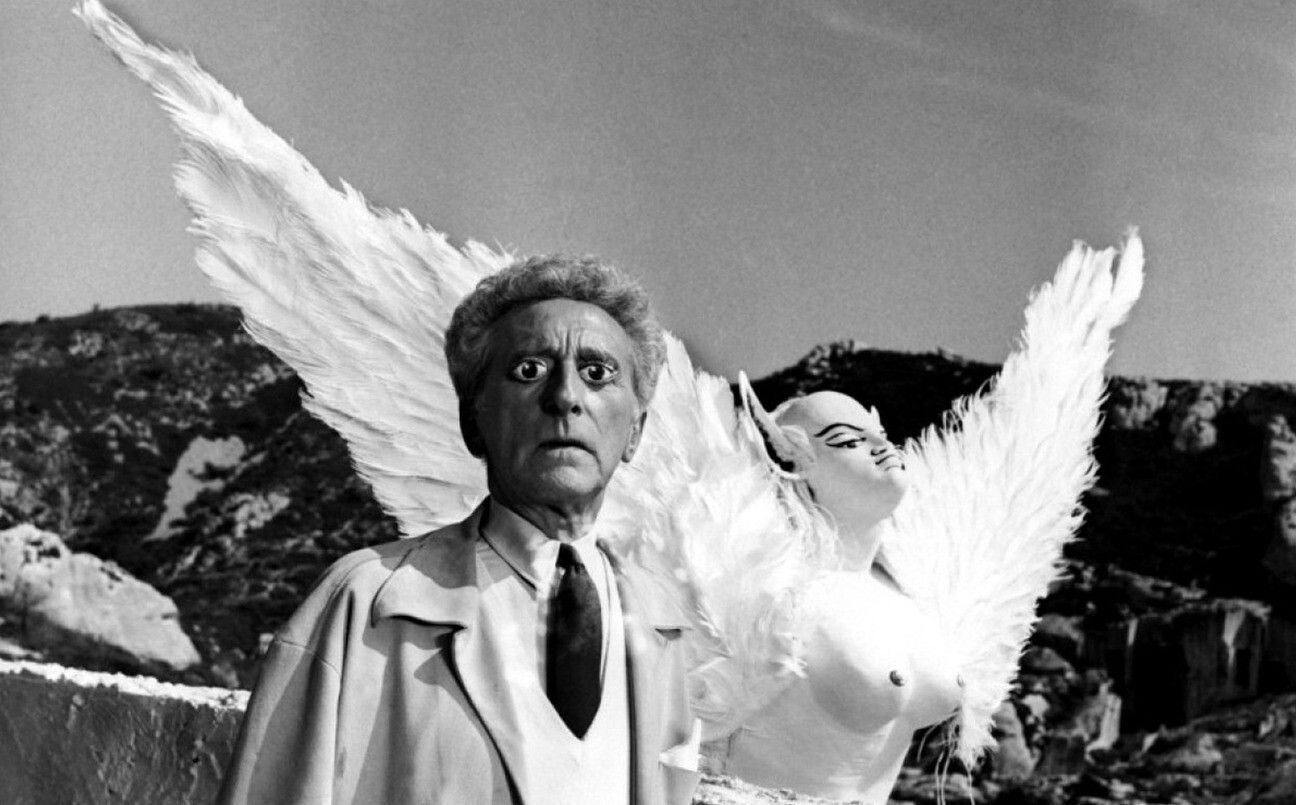

Jean Cocteau (still), Testament of Orpheus, 1960.
We are pleased to publish Jean Cocteau’s “Esperanto of a Film” (1951) that offers a concise reflection on cinema’s capacity to operate as a universal visual language. The text stands as a historical example of mid-century efforts to define film art on its own terms and resonates with later practices by filmmakers that challenged cinema’s reliance on narrative and language.1
My film Les Parents Terribles is doing less well abroad than my other films. This is because the French language plays the leading part in it. The genius of the actors cannot overcome that difficulty. In Orphée, my ideas get through under the cover of the spectacle. This is what makes me hesitate about Britannicus. (Hamlet speaks a language of vast circulation).2
I will say it again: in order to reach a few we must be seen by all. Otherwise a book or a play would suffice.
The phenomenon we observe in all the arts, through which a brazen lie can convince people of a reality of a higher and deeper order, can be made to occur in a film only by an unusual use of people, gestures, words and places (a deliberate unusualness of costumes and settings would degenerate into a masquerade). It is only by a syntax of visual, common words placed in a certain order that the lie of Art can be introduced into the cinematograph. I know only of Caligary where the lie was valid in spite of its operating in external forms.3
Artistic creation is subject to the mechanism of all creation, which alters matter and appearance only by a different organization of the same atoms.
1951
This text was originally published in French in Jean Cocteau: Entretiens autour du cinématographe (Paris: Éditions André Bonne, 1951). The book was translated into English by Vera Traill and published as Cocteau on the Film. Conversations with Jean Cocteau Recorded by Andre Fraigneau. (New York: Dover Publications Inc.) in 1954.
Orphée (1950) is Cocteau’s filmic adaptation of the Orpheus myth, and Britannicus (1669) is a classical tragedy by Jean Racine, which Cocteau hesitated to adapt into a film.
The Cabinet of Dr. Caligari (1920), directed by Robert Wiene, is a key work of German Expressionist cinema.